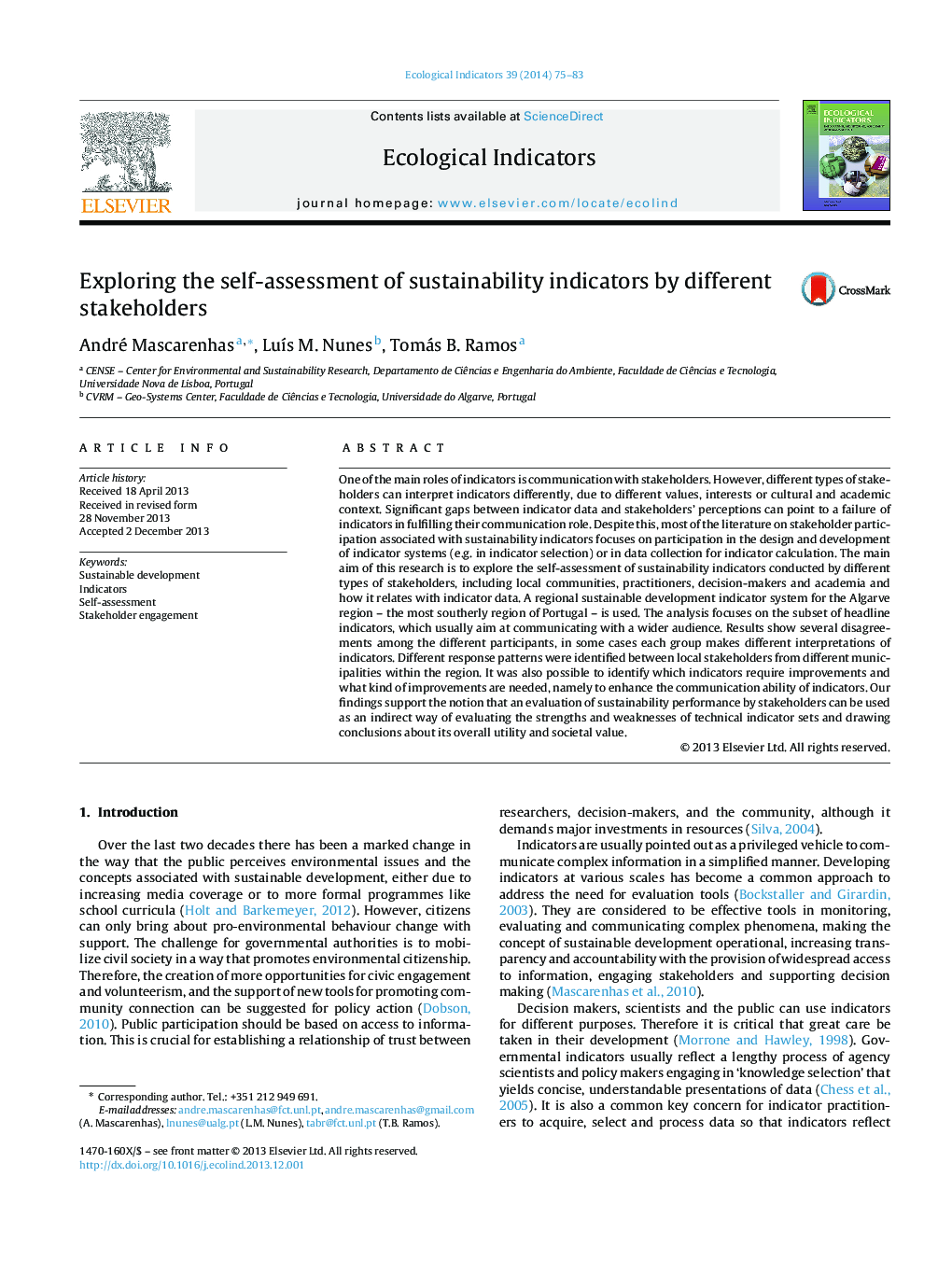| Article ID | Journal | Published Year | Pages | File Type |
|---|---|---|---|---|
| 6295402 | Ecological Indicators | 2014 | 9 Pages |
Abstract
One of the main roles of indicators is communication with stakeholders. However, different types of stakeholders can interpret indicators differently, due to different values, interests or cultural and academic context. Significant gaps between indicator data and stakeholders' perceptions can point to a failure of indicators in fulfilling their communication role. Despite this, most of the literature on stakeholder participation associated with sustainability indicators focuses on participation in the design and development of indicator systems (e.g. in indicator selection) or in data collection for indicator calculation. The main aim of this research is to explore the self-assessment of sustainability indicators conducted by different types of stakeholders, including local communities, practitioners, decision-makers and academia and how it relates with indicator data. A regional sustainable development indicator system for the Algarve region - the most southerly region of Portugal - is used. The analysis focuses on the subset of headline indicators, which usually aim at communicating with a wider audience. Results show several disagreements among the different participants, in some cases each group makes different interpretations of indicators. Different response patterns were identified between local stakeholders from different municipalities within the region. It was also possible to identify which indicators require improvements and what kind of improvements are needed, namely to enhance the communication ability of indicators. Our findings support the notion that an evaluation of sustainability performance by stakeholders can be used as an indirect way of evaluating the strengths and weaknesses of technical indicator sets and drawing conclusions about its overall utility and societal value.
Related Topics
Life Sciences
Agricultural and Biological Sciences
Ecology, Evolution, Behavior and Systematics
Authors
André Mascarenhas, LuÃs M. Nunes, Tomás B. Ramos,
